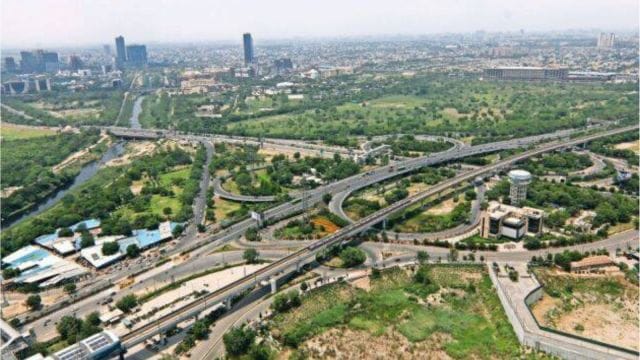Big boost for businessess, UP govt clears ordinance to decriminalise trade offences
The government has decided to set up a Directorate for Environment and Climate Change, which, it claimed, is among the first-of-its-kind at the state level in the country.
 The decision is a result of meetings between investors and the Industrial Development Department and Invest UP, after many industrialists had raised concern over provisions in the old laws being used to harass them. Archive
The decision is a result of meetings between investors and the Industrial Development Department and Invest UP, after many industrialists had raised concern over provisions in the old laws being used to harass them. ArchiveIn a key decision to attract greater investment to the state, the Uttar Pradesh government has approved an ordinance to decriminalise offences related to trade and traders. Imprisonment has been replaced by fines and related penal actions, aiming to give industrialists more access to set up their business establishments and expand their trade.
The decision is a result of meetings between investors and the Industrial Development Department and Invest UP, after many industrialists had raised concern over provisions in the old laws being used to harass them.
Separately, the government has also created a Directorate for Environment and Climate Change and given its approval for creation of 274 new posts in the State Judicial Department. The Cabinet gave its nod to all three decisions on Tuesday night.
The Cabinet first cleared the ‘Uttar Pradesh Sugamya Vyapar (Ease of Doing Business) Amendment of Provisions Ordinance 2025, which removed a maximum number of offences.
A total of 13 industrial and trade laws were amended. The Acts under amendment include the Factory Act, Shop and Commercial Establishment Act, Motor Transport Workers Act and Contract Labour Act, stated a senior official.
The amendment is poised to give a major relief to industrialists by abolishing provisions of imprisonment in offences such as illegal lock out, lay-off, running a trade or industry without registration. Jail term has, instead, been replaced with monetary and administrative penal actions.
Second, the government has decided to set up a Directorate for Environment and Climate Change. The creation of such a Directorate, the government claimed, is among the first-of-its-kind at the state level in the country.
This Directorate will work on integrated strategies for environmental conservation and sustainable development, setting a benchmark for other states to emulate in aligning with India’s climate commitments under national and global frameworks, the government stated.
The government further stated that the creation of the Directorate positions Uttar Pradesh among India’s most proactive states on climate governance. The Directorate will formulate and implement strategies that resonate with India’s commitments under the Paris Agreement and COP28 outcomes. With this, UP aims to contribute to India’s target of achieving net-zero emissions by 2070, emphasising climate resilience and sustainable growth, state the government.
On the creation of 274 new posts in the State Judiciary Department, the government stated that the initiative is aimed at enhancing judicial efficiency, timely justice, and governance accountability. The newly created posts — which included those in administration, judicial officers, and support staff — will ensure faster case disposal, improved management, and greater transparency.
The government also said it will help improve case management and accessibility for citizens while helping drive the national vision of Ease of Justice.
Other Cabinet approvals
In a significant move, the government has now made a screening test compulsory in direct recruitment to Group A posts conducted through interviews. The Cabinet approved the proposal, aiming to stop irregularities frequently raised by candidates.
As per the approval given to the Uttar Pradesh Public Service (Direct Recruitment through Screening Test) Rules 2025, the selection will be finalised if one obtains 75% marks through the screening test and the remaining from the interview. So far, these recruitments were being done through interviews only, the government stated.
In another cabinet decision, the eligibility criteria for District Programme Officers (DPOs) in the Child Development and Nutrition Department has been expanded to include graduates in Sociology, Economics, and Psychology. This ensures a more interdisciplinary approach to social welfare, reinforcing evidence-based public administration and inclusive development.







